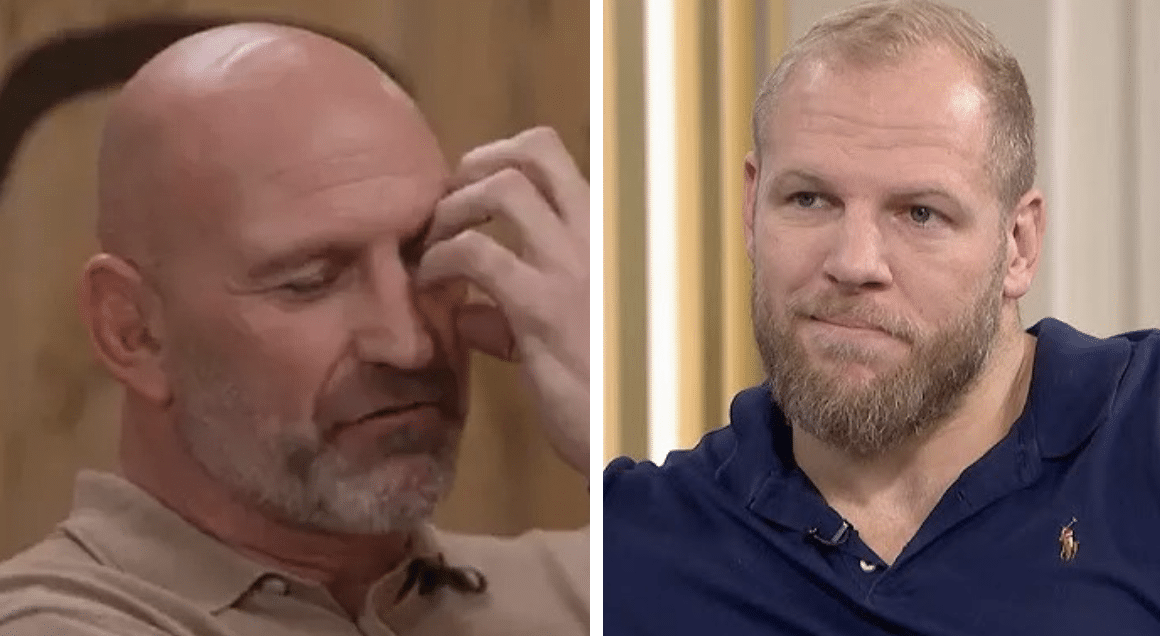The rugby world has been jolted by news that several former England internationals are facing serious financial struggles.
Here’s a closer look at four ex-stars whose fortunes have taken a difficult turn
Join the RUCK’s WhatsApp community here and get the latest news sent straight to your messages.
🔴 JAMES HASKELL
Former England star James Haskell is deep in financial trouble
Court documents reveal he’s locked in a legal dispute with his landlord over damage to property and equipment linked to his failed gym business.
The ex-back rower, 40, launched a F45 gym in Bath back in 2017—but the venture couldn’t survive the pandemic. Now, his company Hask 45 (Bath) Ltd is nearly £1 million in the red.
According to the latest filings, the business is battling a legal claim over unpaid rent and costly repairs, with £927,738 in total liabilities—£437,000 of which is owed to another of Haskell’s own companies.
Big plans to expand the gym chain to London and Manchester were scrapped after COVID hit. Hask 45 (Manchester) Ltdclosed in March 2021, while Hask 45 (Richmond) Ltd followed in September 2022.
Another of his companies, Hask 45 Ltd, has also filed debts of £456,367 as of May 2024.
It doesn’t stop there—two of Haskell’s other sports-related businesses are also in the red. James Haskell Health & Fitness Ltd is down £58,318, and Rugby Connections UK Ltd is £68,855 in debt.
All told, the former Wasps and England
🔴 PHIL VICKERY
World Cup Winner, Former England Captain – Bankrupt
Vickery was a cornerstone of England’s front row during the 2003 World Cup triumph and earned 73 caps for his country, including stints as captain.
A two-time British & Irish Lions tourist (2001 and 2009), he also found domestic success with Gloucester and Wasps, winning the Premiership with both clubs. After retiring, he transitioned into business and media work, but his off-field ventures have now unraveled.
Phil Vickery, part of England’s iconic 2003 World Cup-winning squad, was officially declared bankrupt in March 2024.
The 48-year-old ex-prop filed a debtor’s petition himself.
He owed £97,806 to his own management company, Vix Limited – which is now in liquidation.
The company also racked up a further £71,000 in unpaid VAT, PAYE and NI contributions to HMRC.
His bankruptcy was approved on February 21, and he resigned from at least four business roles around that time.
A source close to the situation claimed Vickery had built up debts in the hundreds of thousands, affecting both business contacts and the tax office.
He’s endured a brutal run – a divorce, bankruptcy, and long spells grappling with mental health issues.
Victory shouldn’t come at this cost. And Vickery isn’t afraid to call it out.
“Victory shouldn’t cost this much, and the men and women who run this sport should be ashamed about the state some of the players who gave their lives to it are in now,” he says. “It’s not about finger pointing, it’s not about blame, it’s just trying to get across what reality is. And it’s not all doom and gloom. We’ve got some amazing guys in the squad. Incredibly successful people.”
But even the strongest have scars.
“But everyone is fighting a battle somewhere. And if a big old oaf like me can be bothered to stand up and go: ‘I’m Phil Vickery, MBE, England captain, played in three Rugby World Cups, won the European Cup, duh-duh-duh-duh-duh, and actually I’ve fucking battled and I’ve struggled, and if that helps somebody, brilliant.’”
Now he’s one of many former players taking legal action against World Rugby, the RFU, and WRU – accusing the powers-that-be of failing to protect them from the long-term damage of repeated brain trauma.
“I knew that I had issues with memory and brain,” Vickery says. “Then when I went for the scan, it came back and showed probable CTE [chronic traumatic encephalopathy], which I kind of knew before I’d even had it done. I said that to the guy: ‘I know something’s wrong with me.’ But I didn’t want to do anything about it. There are lots of people out there now who are in denial, but have got issues and problems. I know it. But anyway, that’s another story.”
Another story? Not really. It’s the story of rugby today — and it’s one that’s impossible to ignore.
Like this:
Like Loading…

